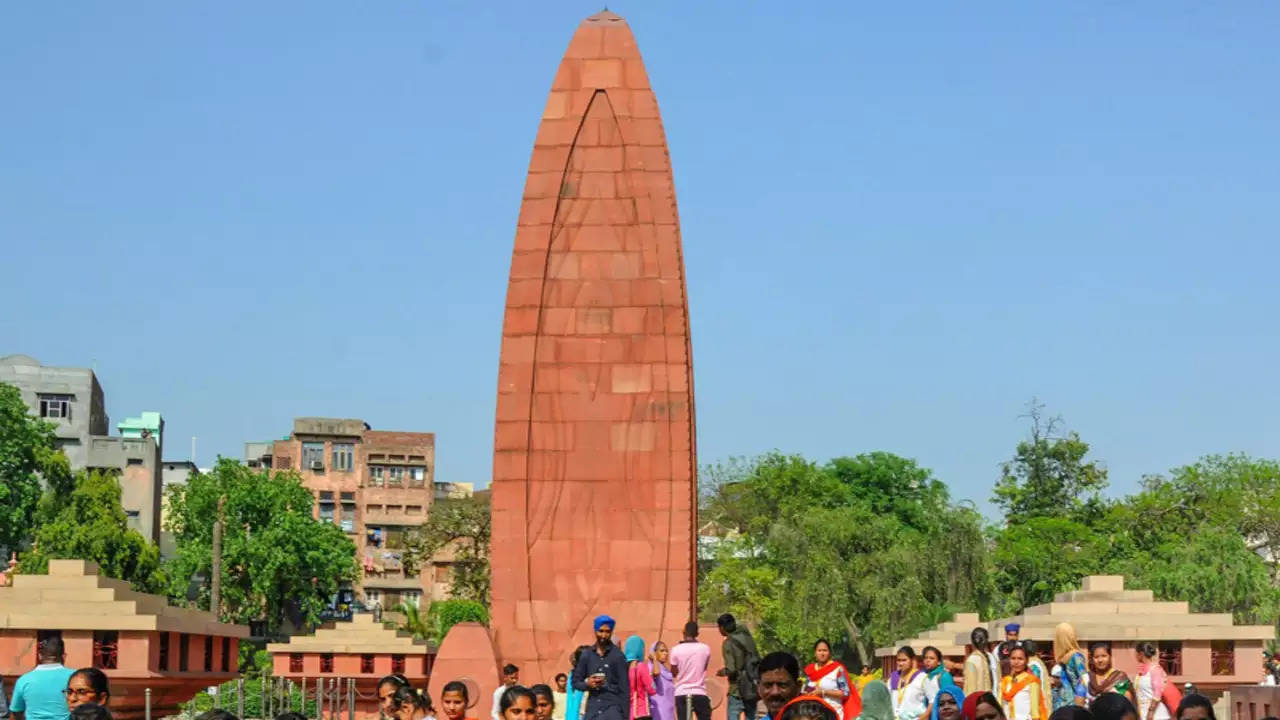[ad_1]
The Jallianwala Bagh massacre, also known as the Amritsar massacre, was a tragic incident that occurred on April 13, 1919, in the city of Amritsar, Punjab, India. British Indian Army troops, under the command of General Reginald Dyer, fired on a crowd of unarmed Indian civilians who had gathered in Jallianwala Bagh, a public garden, to peacefully protest against the arrest and deportation of two national leaders, Satya Pal and Saifuddin Kitchlew.
The troops, armed with rifles and machine guns, blocked the only exit to the garden and opened fire on the crowd, killing and injuring hundreds of people. The exact number of casualties is unknown, but it is estimated that around 379 people were killed and more than 1,000 were injured.
The Jallianwala Bagh massacre is considered a turning point in the Indian independence movement and a defining moment in the history of colonialism. It sparked widespread outrage and led to a surge in nationalist sentiment, which eventually contributed to the country’s independence from British rule.
The incident is remembered every year in India as a day of remembrance and is considered a national tragedy. The site of the massacre, Jallianwala Bagh, has been turned into a memorial to the victims, and is a place of pilgrimage for people from all over the country.
The impact of the Jallianwala Bagh Massacre was significant, both in India and around the world. Here are some of the key ways in which it affected people and events:
Outrage and Protests: The Jallianwala Bagh Massacre caused outrage and shock among the Indian population, leading to widespread protests and demonstrations against British rule. This event became a catalyst for the Indian independence movement and helped to unite people from different regions and religions in their opposition to British colonialism.
International condemnation: The Jallianwala Bagh Massacre received international attention and condemnation, with newspapers and political leaders around the world denouncing the British government’s actions. The incident led to a loss of faith in the British Empire and further discredited British rule in India.
Indian National Congress: The Indian National Congress, the main political party fighting for Indian independence, passed a resolution condemning the massacre and demanding the end of British rule in India. This resolution sparked a movement for civil disobedience and non-cooperation, which became one of the most effective tools for the Indian independence movement.
Martial Law: The British government imposed martial law in Punjab after the Jallianwala Bagh Massacre, leading to widespread repression and arrests of political activists. This action further fueled Indian resentment and anger towards the British.
Impact on Reginald Dyer: Brigadier General Reginald Dyer, who ordered the firing on the peaceful gathering, was widely condemned for his actions. He was eventually forced to retire from the army and was censured by the British government for his role in the massacre.
Overall, the Jallianwala Bagh Massacre had a profound impact on India’s struggle for independence and on British colonial rule. It remains a tragic reminder of the brutality and violence of colonialism and the power of peaceful resistance.
The troops, armed with rifles and machine guns, blocked the only exit to the garden and opened fire on the crowd, killing and injuring hundreds of people. The exact number of casualties is unknown, but it is estimated that around 379 people were killed and more than 1,000 were injured.
The Jallianwala Bagh massacre is considered a turning point in the Indian independence movement and a defining moment in the history of colonialism. It sparked widespread outrage and led to a surge in nationalist sentiment, which eventually contributed to the country’s independence from British rule.
The incident is remembered every year in India as a day of remembrance and is considered a national tragedy. The site of the massacre, Jallianwala Bagh, has been turned into a memorial to the victims, and is a place of pilgrimage for people from all over the country.
The impact of the Jallianwala Bagh Massacre was significant, both in India and around the world. Here are some of the key ways in which it affected people and events:
Outrage and Protests: The Jallianwala Bagh Massacre caused outrage and shock among the Indian population, leading to widespread protests and demonstrations against British rule. This event became a catalyst for the Indian independence movement and helped to unite people from different regions and religions in their opposition to British colonialism.
International condemnation: The Jallianwala Bagh Massacre received international attention and condemnation, with newspapers and political leaders around the world denouncing the British government’s actions. The incident led to a loss of faith in the British Empire and further discredited British rule in India.
Indian National Congress: The Indian National Congress, the main political party fighting for Indian independence, passed a resolution condemning the massacre and demanding the end of British rule in India. This resolution sparked a movement for civil disobedience and non-cooperation, which became one of the most effective tools for the Indian independence movement.
Martial Law: The British government imposed martial law in Punjab after the Jallianwala Bagh Massacre, leading to widespread repression and arrests of political activists. This action further fueled Indian resentment and anger towards the British.
Impact on Reginald Dyer: Brigadier General Reginald Dyer, who ordered the firing on the peaceful gathering, was widely condemned for his actions. He was eventually forced to retire from the army and was censured by the British government for his role in the massacre.
Overall, the Jallianwala Bagh Massacre had a profound impact on India’s struggle for independence and on British colonial rule. It remains a tragic reminder of the brutality and violence of colonialism and the power of peaceful resistance.
[ad_2]
Source link


